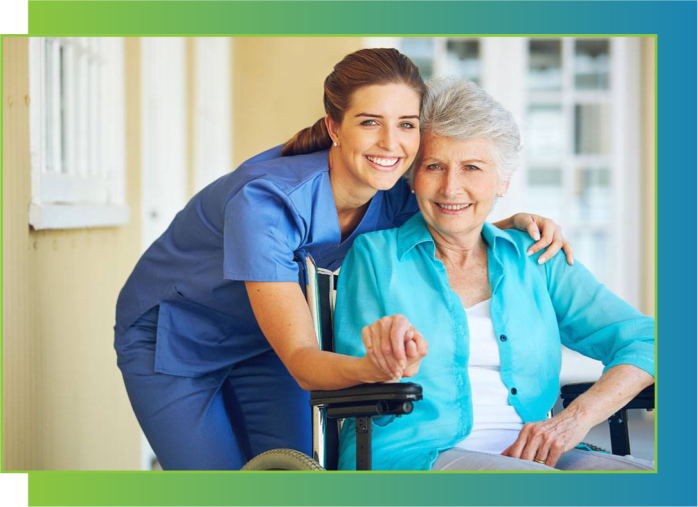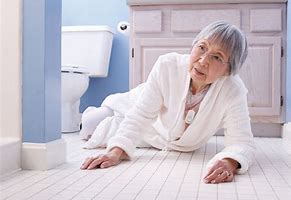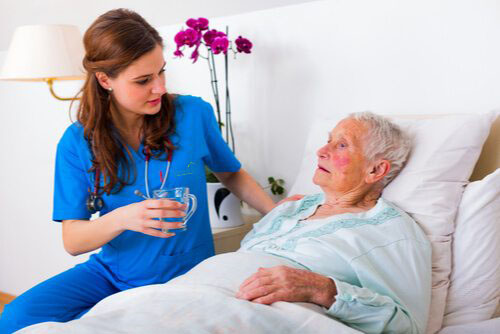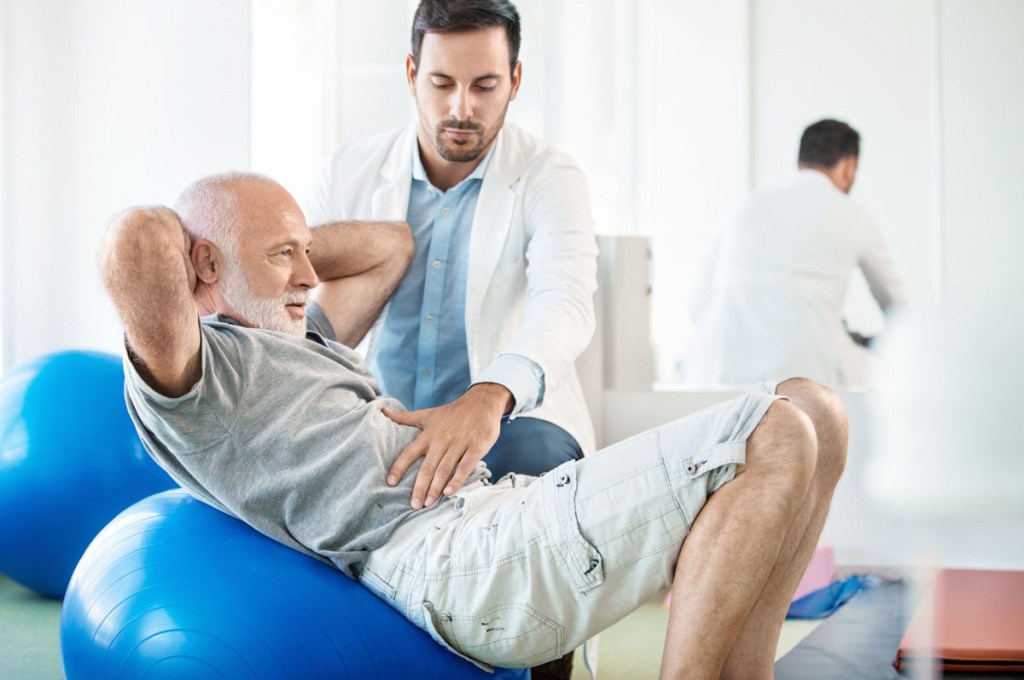Vanessa Home Health Services
Professional caregivers in one click
Welcome

At Vanessa Home Healthcare, we believe that caring is more than just a job– it’s a way of life. That’s why our caregivers mean so much more to the people, families, and the organizations they serve. Our nurses, therapists, CNAs, and caregivers deliver professional and compassionate healthcare in the comfort and familiarity of home.

We are proud to provide a range of home health care services to meet your loved one’s unique needs. From companionship, bathing, and hygiene assistance to in-home infusions and medication management, our professional care staff is available 24/7 to help when you need it most.

HOW TO PROTECT YOURSELF FROM COVID 19: INSTRUCTIONS FOR OLDER ADULTS

Source: Center for Disease Control and Prevention
https://www.cdc.gov/coronavirus/2019-ncov/
Older adults and people who have severe underlying medical conditions like heart or lung disease or diabetes seem to be at higher risk for developing more serious complications from COVID-19 illness.
Steps to Reduce Risk of Getting Sick
There are things you can do to reduce your risk of getting sick.
- Stay home if possible.
- Wash your hands often.
- Keep space between yourself and others (stay 6 feet away, which is about two arm lengths).
- What You Can Do
- How to Protect Yourself
Stress & Coping
You may feel increased stress during this pandemic. Fear and anxiety can be overwhelming and cause strong emotions. Learn about stress and coping.head side cough icon
Symptoms
Symptoms of COVID-19 can range from mild symptoms to severe illness and death. Symptoms may appear 2-14 days after exposure. Watch for fever, cough, and shortness of breath. Watch for symptoms.clipboard list check icon
Develop a Care Plan
A care plan summarizes your health conditions, medications, healthcare providers, emergency contacts, and end-of-life care options (for example, advance directives). Complete your care plan in consultation with your doctor, and if needed, with help from a family member or home nurse aide.
A care plan can have benefits beyond the current pandemic. You can update your care plan every year, or any time you have a change in your health or medications. Care plans can help reduce emergency room visits and hospitalizations, and improve overall medical management for people with a chronic health condition, resulting in better quality of life.
During the COVID-19 pandemic, having a care plan is an important part of emergency preparedness.
- Guidance on how to develop your emergency preparedness care plan.
- Download a fillable care plan form pdf icon[5 pages]
- Serious Illness Care Program COVID-19 Response Toolkitexternal icon
clinic medical iconSenior Living Facilities
People with loved ones in nursing homes, assisted living facilities, and other types of senior living facilities may be understandably concerned about their loved one’s risk of illness from COVID-19.
To protect these vulnerable friends and family members, CDC has advised that long-term care facilities
- restrict visitors,
- regularly check healthcare workers and residents for fevers and symptoms, and
- limit activities within the facility to keep residents safe.
Older Adults are at Higher Risk
8 out of 10 deaths reported in the U.S. have been in adults 65 years old and older. See below for estimated percent of adults with confirmed COVID-19 reported in the U.S:
| Adults 65 – 84 | Adults 85+ | |
|---|---|---|
| Hospitalizations | 31-59% | 31-70% |
| Admission to intensive care | 11-31% | 6-29% |
| Deaths | 4-11% | 10-27% |
How Do I Know If I Can Receive Occupational Therapy at Home?

Sometimes serious illness or injury leaves a person without ability for self-care, and they may need help at home.
At home, patients remain safe in familiar surroundings with the knowledge and ability to manage their conditions, medications and symptoms. Another benefit of receiving care in the home is that family members and caregivers can be more readily available and can be more involved.
Occupational therapy can help you to overcome challenges you might face as you recover. It is designed to help you make small adjustments to regain the ability to complete activities you do on a daily basis and improve your quality of life.
Whether you are heading home from a hospital or a skilled nursing facility, or you have experienced a recent decline from your condition, you only need to meet a few guidelines to receive Medicare home health services. You must:
- Need skilled nursing care (not custodial services or personal care assistance)
- Be under the care of a physician who has established a home health plan of care (POC) for you
- Have had a face-to-face meeting regarding your primary diagnosis for home health with a physician or an allowed non-physician practitioner (NPP) in the past 90 days
- Not be able to leave home on your own without assistance or have a condition that makes leaving home medically unsafe.
What does cardiac rehab involve?

Cardiac rehabilitation doesn’t change your past, but it can help you improve your heart’s future.
Vanessa home Health Services include stroke aftercare, which is designed to improve your cardiovascular health if you have experienced a heart attack, heart failure, angioplasty or heart surgery.
However, home health professionals can only help you during the recovery period. The main role in your rehab process is yours.
Cardiac rehab has three equally important parts:
- Exercise counseling and training: Exercise gets your heart pumping and your entire cardiovascular system working.
- Education for heart-healthy living: A key element of cardiac rehab is educating yourself: how you can manage your risk factors, quit smoking, make heart-healthy nutrition choices, etc.
- Counseling to reduce stress: Stress hurts your heart. This part of cardiac rehab helps you identify and tackle everyday sources of stress.
But it doesn’t mean that you need to face heart disease alone. Cardiac rehab is a team effort.

Having returned home from a medical facility, you can partner with Vanessa Home Health’s physical therapy specialists, nurses, pharmacists – plus family and friends – to take charge of the choices, lifestyle and habits that affect your heart.
- Here’s how to get going and make the most of cardiac rehab:
- Ask your doctor/case manager if you are eligible for home health services.
- If you are, ask for a referral.
- Work together to create a cardiac rehab plan.
- Keep taking your medicines correctly.
- Call 911 if you experience new or worsening symptoms.
Why Skills and Certification is Important for Home Health Service Nurses

When you are looking for a home healthcare facility for your loved one, the very first thing you keep in mind is to get the highest quality services for your family member.
One of the most frequently asked questions we receive at Vanessa Home Health Services is whether our nursing staff is skilled and certified. Here we will share the recruitment procedure we apply for nurses:
- There are certain levels of home health nursing. Regardless of the level, Vanessa home health nurses must value autonomy, individualized care, and family-centered care.
- Registered nurses must complete an accredited nursing program and obtain either an associate’s degree in nursing (ADN) or a Bachelor of Science degree (BSN). They must also pass the NCLEX exam for licensure.
- Because our nursing staff work within patients’ homes, they receive their assignment from our Patient Care Coordinators and then drive to patients’ home to perform the specified nursing care as ordered by the physician.
- Based on their credentials, our nursing staff perform a variety of tasks, which are listed here. Skills from many different specialties are also necessary in the field of home health:
- Medical- surgical
- Mental health
- Gerontology
- Pediatrics
- Community/ public health
Integrating these skills as well as performing task-based services are part of Vanessa Home Health Services.
A Bit More About Home Health Care Services

Home health care is a broad term which describes a range of in-home health care and general assistance to people with illness and injury or those progressing through the aging process.
For seniors, in particular, home health care services can be an alternative to residing in nursing care facilities, feeling isolated and lonely.
✓ Home Health Care Services are far less expensive than the care seniors receive in hospital settings or nursing facilities.
✓ Certain Home Health Care Services are covered by Medicare.
✓ The services can be customized to highly individual needs of patients.
✓ The level of service can be adjusted for individual ailments.
✓ Personalized home health care can ensure that the patients individual and potentially complex medical needs are covered in a professional and compassionate manner.
Here are some examples of Home Health Care Services you can get for yourself and your loved one:
- Assistance with occupational and physical therapy for post-surgery patients
- Speech therapy
- Occupational therapy
- Infection prevention
- Wound care
- Pain management
- Medication management
- Monitoring blood pressure, heart rate, temperature, and rate of breathing
- Monitoring chronic conditions, serious illness and unstable health problems.
5 Benefits of Home Health Care

When patients leave the hospital and return home with home care, they go from highly supportive medical environments with potentially many physicians, nurses, aides, and other professionals, to non-medical environments with formal and informal caregiver support frequently supplemented by visits from home care nurses.
Patients and caregivers must struggle to absorb confusing and potentially contradictory information imparted both by multiple clinicians prior to discharge from the hospital and by home care nurses.

Providers, for their part, often have incomplete understandings of home environments and patient and caregiver capabilities.
Despite these difficulties, patients are largely left to themselves, expected to be engaged in their care sufficiently to own and manage their medical conditions. It is a daunting task. This is where the ‘Vanessa Home Health Services’ (VHHS) comes for help.
Our home nurses are willing and enthusiastic to improve the patients’ care. They provide a valuable service to the patients by helping them stay healthier, reducing costs, and helping them avoid hospitals and long-term care facilities.

If you are caring for a loved one, here are the ways we can support you:
- VHHS professionals can be there when you aren’t able to be
- Access to skilled nursing care at home
- Support with diet and nutrition
- Medication management
- Caring companionship
- Much More
6 Ways to Reduce Fall Risk for Seniors

Seniors falling is not usually a laughing matter. As we age, falls can become increasingly common and risky for seniors. The frequency of falls increases with age and frailty level. According to the World Health Organization (WHO) Global Report, approximately 30-50% of people living in long-term care institutions fall each year, and 40% of them experienced recurrent falls.
While you may not be able to always stop a senior from falling, you can take some steps to help reduce the risk. There are many reasons for falls in the elderly, so make sure to look at the whole picture. Use these precautions from Vanessa Home Health Center professionals to take care of your loved one and their home to prevent falls:

The bathroom is essential.
- Avoid wet surfaces (on the floor or counters).
- Use non-slip mats in the bathtub and shower.
- Install grab bars in strategic points around the bathroom.
- Provide a shower seat.
- Replace the shower head with a hand-held nozzle.

Stairs are more than important.
- Clear the stairs.
- Differentiate between the stairs. Aging eyes may not always be able to separate one step from the next.
- Shovel snow and chip ice off stairs in the winter.
- Tighten stair handrails.
Tuck away extension cords
Get your senior a proper pair of shoes.
- Shoes need to fit well and have non-slip soles.
- Shoes with Velcro straps can be easier to tighten or loosen.
- They also remove any risk of tripping over long laces.
Remove excess furniture.
- A more mobile senior may be able to sidestep a footstool or a coffee table but not all seniors can do this.
- Remove unneeded furniture to give the senior more room to maneuver and help to create a safer living environment.
- Also, a deep plush armchair may look comfortable but the senior may become trapped if he or she lacks the body strength necessary to push up and out of the chair.

And finally, keep a senior active. Whether through regular walking or light exercising and stretching, an active senior can remain more stable than a sedentary senior. Exercising can help prevent falls by keeping stabilizing muscles strong.
How to Get Short-Term Home Health Care Without Breaking the Bank

Let’s say you end up in the hospital after a fall and get surgery on your knee and have not completely healed from your injury after spending at least 3 days.
The discharge documents from your physician will include information about you being homebound and needing short-term skilled care. The documents will also include a plan of care that notifies Medicare and health care agencies of the services and equipment you will need while being cared for. Once this happens you are now eligible to receive home health care from a Medicare-approved agency.
The Medicare will however cover only care for specific services:
Skilled nursing care and rehabilitative care from approved home health care services, such as physical therapy, occupational therapy, speech-language pathology services, medical social services, durable medical equipment, medical supplies, and other services provided in your home.

- Skilled nursing care
A nurse comes to your home to treat your illness or injury. This is covered on a part-time basis. You can only get this care from a registered or licensed practical nurse. Medicare pays for a nurse to watch you and see if your condition changes. It also pays for a nurse to teach you and your caregivers how to take care of you.

- Rehabilitative care
Physical, speech-language and occupational therapy: You can get treatments to help you improve or maintain your ability to move, talk, swallow and do daily activities for as long as your doctor says you need them. These are called physical therapy and speech and language therapy services. If you get this kind of skilled therapy at home, you can also qualify for home health aide care.
Home Health Care is covered by Medicare

As healthcare becomes more efficient and sometimes less invasive, treatment doesn’t necessarily require a hospital or doctor’s office. That also means that the critically ill or immobile patients don’t have to go through the burdensome process of leaving their home.
If you’re wondering whether Medicare covers home health care services, the answer is, yes.
Are you covered by Medicare?
Home health care services are covered under Original Medicare—Part A and Part B. As long as you qualify you should have no out of pocket costs. Before Medicare covers your home health care treatment you have to be deemed eligible. Make sure you meet these criteria:
- You’re under the care of a doctor and that plan is reviewed regularly by the doctor.
- You and your doctor agree that you need skilled nursing care, physical therapy, speech or language services, or continued occupational therapy.
- The home health care agency is Medicare-approved.
- Your unable to leave your home without major effort or your doctor recommends that you not leave your home.
- Your doctor, or an eligible representative of your doctor like a nurse practitioner, must have face-to-face encounters with you at certain intervals to address the reason you need home health care.
Finally, home health care is normally “intermittent”— less than 7 days per week for less than 8 hours each day and 28 hours per week for up to 21 days. If you need full-time skilled nursing care, you won’t usually qualify.
What can Medicare Cover?
Skilled Nursing– A registered nurse (RN) or licensed practical nurse (LPN) may provide services like giving IV drugs, injections, feeding tube maintenance, teaching about diabetes care, and more.
